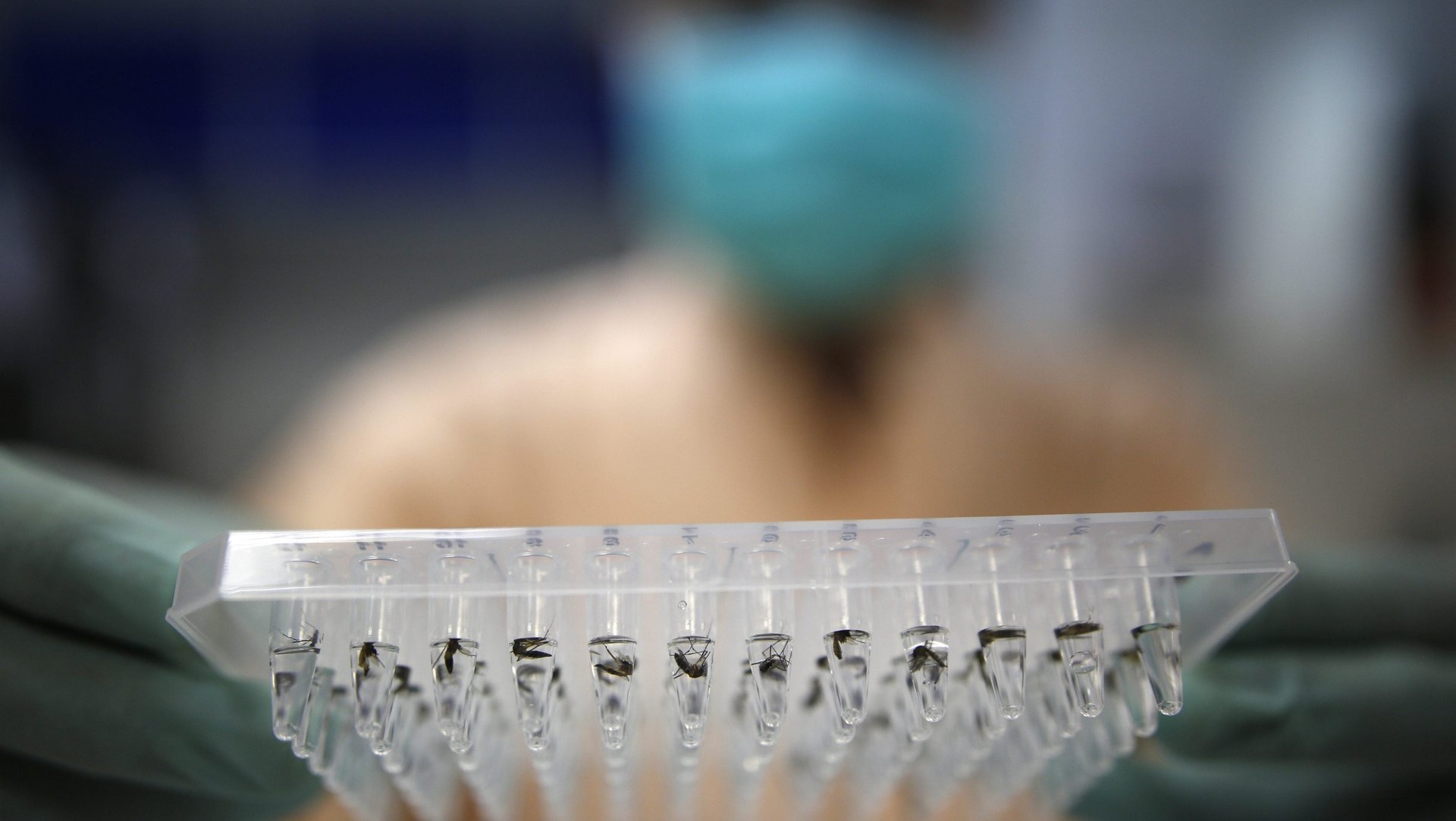The EPA has approved the release of weaponized mosquitoes in 20 US states
The US Environmental Protection Agency has given its approval for MosquitoMate, a Kentucky-based biotechnology company, to release its bacteria-infected male mosquitoes in several parts of the United States.


The US Environmental Protection Agency has given its approval for MosquitoMate, a Kentucky-based biotechnology company, to release its bacteria-infected male mosquitoes in several parts of the United States.
The EPA approval was first reported by Nature on Monday (Nov. 6), and confirmed by the company. The EPA said it registered MosquitoMate’s mosquito as a new biopesticide on Nov. 3, with a five-year license to sell in 20 different states. (Here are the EPA’s risk assessments and public comments.)
The company’s lab-grown mosquitoes, which it calls ZAP males, are infected with the Wolbachia bacteria, naturally occurring in many insects, but not in Aedes aegypti, a vector for viruses such as yellow fever, dengue and Zika. When bacteria-infected males mate with uninfected females, the females produce eggs that don’t hatch. In addition, infected mosquitoes are less likely to spread disease.
Entomologist Stephen Dobson, CEO of MosquitoMate, told Quartz that the company could start selling the infected mosquitoes in the summer for use by municipal bodies and individual homeowners. The male mosquitoes don’t bite, which should make the release of these insects sound less alarming.
The 20 approved states are California, Connecticut, Delaware, Illinois, Indiana, Kentucky, Massachusetts, Maine, Maryland, Missouri, New Hampshire, New Jersey, Nevada, New York, Ohio, Pennsylvania, Rhode Island, Tennessee, Vermont, and West Virginia, as well as Washington, DC. The permitted states include mostly those with similar weather conditions to Kentucky, New York, and California, states where the company earlier conducted trials.
In April, the company began a 12-week field trial that involved releasing 20,000 male Aedes aegypti mosquitoes in Stock Island, in the Florida Keys.
Other countries have also been using lab-produced mosquitoes to reduce the populations of the insects. In China’s southern city of Guangzhou, scientists built a mosquito factory that produced millions of Wolbachia-infected male mosquitoes last year. Brazil has used the bacteria-infected mosquitoes in its campaign against the Zika virus.
Brazil has also tried the use of a different kind of lab mosquito, one that is genetically modified, which has faced resistance in the US.
This article was updated with comment from the EPA and MosquitoMate on Nov. 9.